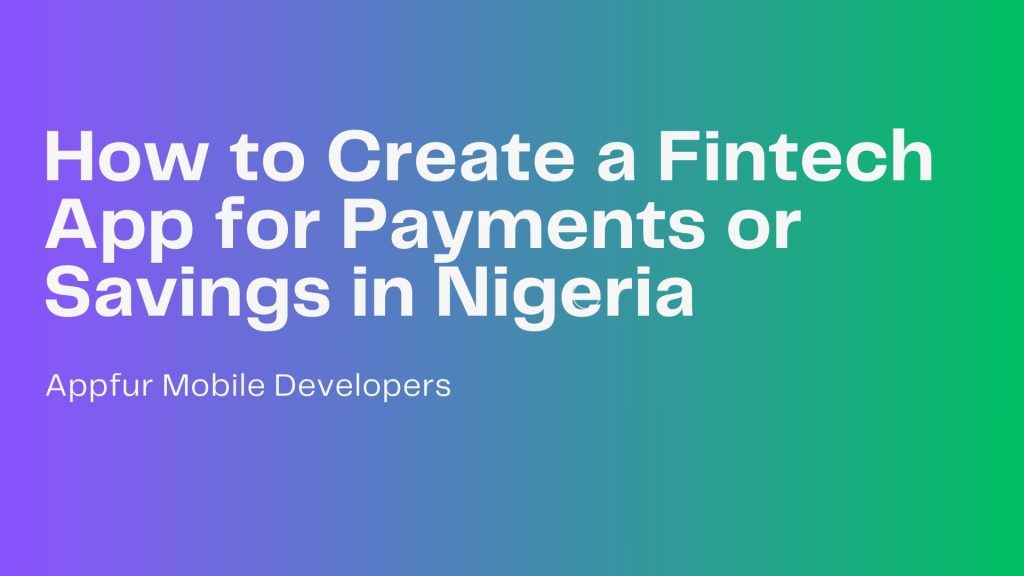Did you know that Lagosians spend over 75 minutes daily stuck in traffic, and that logistics delivery apps are now powering everything from jollof rice orders to same-day delivery of wedding outfits? Nigeria’s urban mobility crisis has given birth to a thriving market for smart ride-hailing and delivery solutions.
If you’re thinking about building a ride-hailing or logistics app in Nigeria, this guide will help you build a platform that solves real transportation challenges, scales fast, and stays competitive.

Step 1: Choose Your Transportation Model
First, decide the category of service you’re targeting:
- Ride-hailing: cars, motorcycles (okada), tricycles (keke), boat rides
- Delivery logistics: food delivery, eCommerce orders, medical supplies, document pickup
- Fleet management: for companies with internal drivers and delivery agents
Each model requires a different approach to UX, operations, and compliance.
Also define your service area:
- Start with one city (e.g., Lagos, Abuja, Port Harcourt) and grow outward.
Step 2: Key Features for a Nigerian Ride-Hailing or Logistics App
At a minimum, your app should have:
For Customers:
- Registration (via phone or email)
- Real-time location tracking
- Ride or delivery request with fare estimate
- Multiple payment options (cash, wallet, card)
- Rider rating and reviews
- Notifications (ride assigned, ride arrived, delivery complete)
- Trip history and receipts
For Drivers/Riders:
- Account registration and verification (NIN, driver’s license, etc.)
- Accept/reject requests
- Navigation and trip updates
- Daily earning dashboard
- Withdrawal requests
For Admin:
- Manage users and drivers
- Dispatching dashboard
- Fare and commission management
- Reports and analytics
- Customer support interface
For logistics, you’ll also need:
- Package category selection
- Delivery status updates (picked, in transit, delivered)
- Proof of delivery (photo or signature)
Step 3: Build with the Right Stack
You’ll need a scalable, real-time tech stack:
- Flutter for building both customer and driver mobile apps
- Node.js or Django for backend APIs
- Google Maps API or Mapbox for location tracking
- Firebase for real-time notifications and chat
- MongoDB or PostgreSQL for data management
- Paystack or Flutterwave for wallet top-up and fare payment
Make sure your system is optimized for low network zones and offline trip syncing.
Step 4: Address the Nigerian Challenges
Unlike some Western markets, Nigerian transport apps face unique challenges:
- Poor road infrastructure and erratic addresses
- Unpredictable traffic patterns
- Frequent internet and power outages
- Drivers without smartphones or GPS
Combat this by:
- Including manual address entry + voice notes
- Offering USSD or SMS-based request options
- Training drivers on app use
- Setting up offline request fallback (cached rides)
Also consider integrating helpline support for emergency or trip issues.
Step 5: Build Partnerships Early
No ride-hailing app succeeds alone. Build early relationships with:
- Local transport unions or cooperatives (NURTW, MOALS)
- Courier companies or third-party fleets
- Restaurants, eCommerce platforms, or event centers
- Fuel or maintenance partners for driver discounts
These partnerships can reduce costs, grow supply fast, and build legitimacy.
Step 6: Ensure Safety, Trust, and Compliance
Safety is a top priority:
- Run background checks on drivers
- Provide safety features like SOS button, trip sharing
- Track routes in real-time
- Allow rider feedback and dispute resolution
You’ll also need local compliance:
- Register with state transport authorities
- Display correct business registration and permits
- Pay regulatory dues (especially in Lagos and Abuja)
- Follow NDPR data protection guidelines
Always consult with legal experts for each city or state you operate in.
Step 7: Growth and Monetization
You can earn from:
- Ride/delivery commission (5–25%)
- Subscription plans for drivers
- Surge pricing during peak hours
- Wallet top-up fees
- White-labeling your app to other cities or businesses
To grow fast:
- Offer referral bonuses to both riders and drivers
- Promote via WhatsApp, TikTok, and Instagram influencers
- Partner with campus groups or courier dispatch centers
- Provide rewards for frequent use (cashback, discounts)
Final Thoughts
Nigeria’s traffic and transport issues aren’t going away anytime soon — but with the right app, you can turn these pain points into a profitable, people-first business. Whether you’re connecting riders to drivers or helping small businesses deliver faster, your app must be reliable, real-time, and rider-friendly.
At Appfur Nigeria, we build custom ride-hailing and delivery platforms that are rugged, scalable, and ready for the hustle of Nigerian cities. From UI design to live tracking, we’ll help you move smarter.
We design and build high-quality, scalable mobile apps tailored to your needs.
Let’s talk! Message us on WhatsApp now: Click Here
Your next big app starts here!
